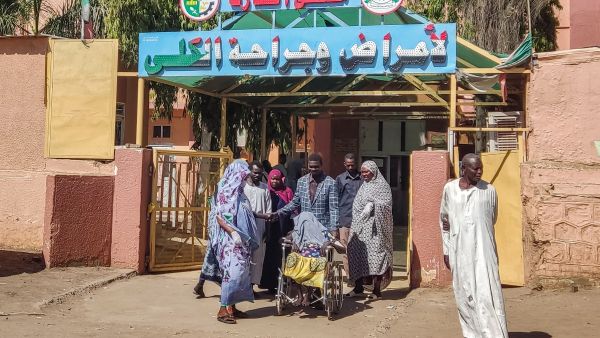ALBAWABA - Later on Wednesday, the United Nations called for $4.1 billion in aid to help Sudan preclude famine and assist those who have fled to neighboring countries.
Martin Griffiths, UN Emergency Relief Coordinator, urged the UN nations to not forget about the people of Sudan who got caught up in the ongoing power struggle between war generals, Abdel Fattah al-Burhan, chairman of the Transitional Sovereignty Council of Sudan, and Mohamed Hamdan Dagalo, also known as Hemedti, head of Rapid Support Forces.
"Ten months of conflict have robbed the people of Sudan of nearly everything – their safety, their homes, and their livelihoods," Griffiths stated.
"The generosity of donors helps us provide food and nutrition, shelter, clean water, and education for children, and to fight the scourge of gender-based violence and care for the survivors. But last year’s appeal was less than half funded. This year, we must do better and with a heightened sense of urgency," Griffiths added.
The UN Office for the Coordination of Humanitarian Affairs (OCHA) will be set to oversee the response in Sudan, while the UN Refugee Agency (UNHCR) will be set to spearhead the regional effort.
The appeal is divided into two parts: a $2.7 billion Humanitarian Needs and Response Plan, which will help 14.7 million people in Sudan, and a $1.4 billion Regional Refugee Response Plan, which will help 2.7 million people in five neighboring countries.
"If we start seeing famine in Sudan – and it won’t be the first time we’ve seen famine in Sudan – to add to the violence, displacement, and lack of a political horizon, then I think we can all agree we have no humanity in us that would allow this to happen," Griffiths told journalists in a press conference.
So far, the war has forced over 1.5 million people to flee to neighboring countries, which already had overstretched resources and large refugee populations. They include refugees and those forced to return to their home countries prematurely.
The majority of them arrive in remote, difficult-to-access areas with limited access to basic services. Support for the humanitarian response is critical, but investments in strengthening national services and community resilience are also necessary to assist host governments and allow people to live in dignity.







